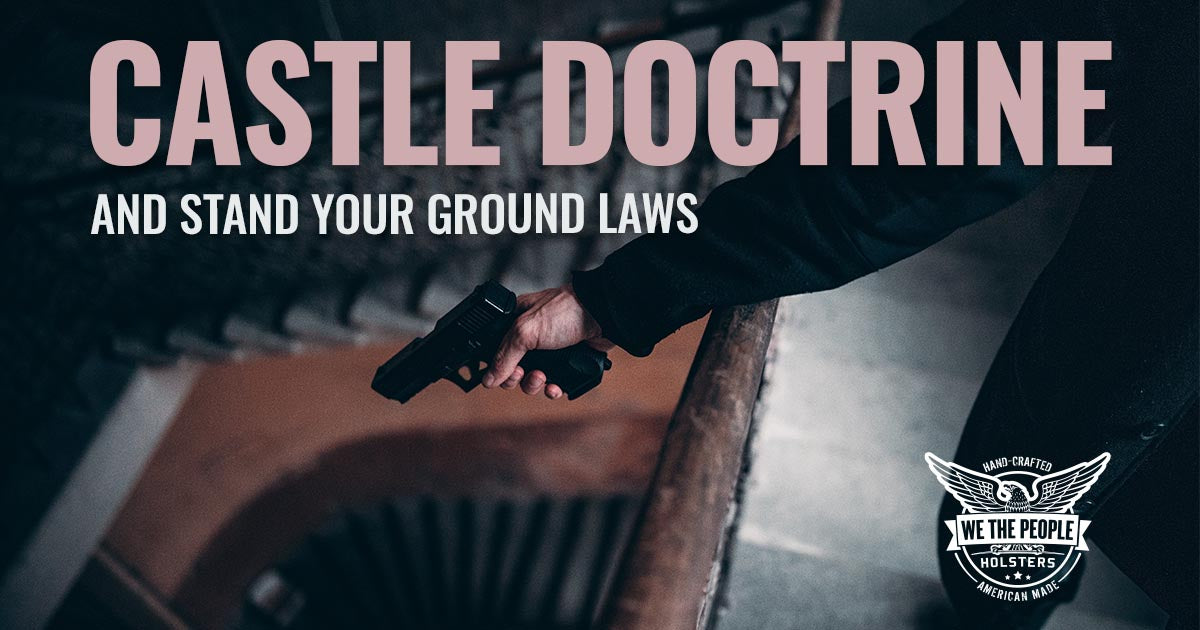

- Defend your castle law illinois how to#
- Defend your castle law illinois driver#
- Defend your castle law illinois license#
Many laws were initially approved to deal with cases of domestic violence – how could an abused woman withdraw when she was attacked in her home? Such legislation has also recently been promoted by the National Rifle Association and other gun rights groups. Rather, it is a provision that, in certain circumstances, deprives you of your right to use lethal force in self-defence if you do not withdraw from a confrontation.
Defend your castle law illinois driver#
The term “obligation to withdraw” is inappropriate (although very common) This is actually not a legally binding obligation (how a parent is required to provide for a minor child, or a driver has a duty to exercise due diligence while driving).

In particular, the report notes that racial and ethnic minorities may be more exposed due to negative stereotypes. The report also noted that misinterpretation of the evidence could lead to the use of lethal force when in fact there was no danger. These included criminals using the law as a defense for their crimes, with more and more people carrying weapons and people feeling unsafe with the feeling that someone might use lethal force in a conflict. If you have any questions regarding self-defense laws in Illinois, call Illinois criminal defense attorney Steven Goldman at Goldman & Associates today.So what remains for the debate on the duty of retreat / “stand-your-ground”? At a 2007 symposium held by the National District Attorneys Association, many concerns were raised that the law could increase crime.
Defend your castle law illinois license#
Many people who have a concealed carry license may find themselves facing serious criminal charges if they unjustifiably fire their weapon. In the meantime, just because you have a license to carry a concealed weapon does not mean that you are able to fire it against anyone. We will keep you informed of whether any of the self-defense laws change. In light of the new concealed carry laws in Illinois, many people are wondering whether Illinois will adapt its laws to allow you to stand your ground outside of your home.
Defend your castle law illinois how to#
An experienced Illinois criminal defense attorney knows how to cast doubt on the prosecutor’s case and show that you were, in fact, justified in using self-defense of your home. Circumstantial evidence may be used to try to prove a person’s state of mind to determine whether they were truly in fear of great bodily harm or death. It is mostly up to the prosecutor to determine whether or not a person truly believed that deadly force was necessary, which can be difficult since it is impossible to know what a person was or was not thinking at the time.

The intruder must enter in a violent, tumultuous, or riotous manner.Instead, the following must apply to the situation: However, deadly force may not be automatically used in every circumstance. Illinois statute 720 ILCS 5/7-2 allows residents to use force in defense of their dwelling, if they believe that such force is necessary to stop another person from unlawfully entering the dwelling or attacking them within the dwelling. Though Illinois does allow you to defend your dwelling under the law, deadly force may only be used under certain circumstances. In such states, a homeowner may shoot at an intruder even if they do not necessarily believe the intruder would have used deadly force against them. Illinois does not have a Stand Your Ground law at this time.įorty-six states have some version of a law called the “Castle Doctrine.” This law allows a person to use force if they believe someone is unlawfully entering their home or vehicle, and many Castle Doctrine laws allow deadly force against intruders. Stand Your Ground laws apply in any area, and you do not have to be in your home or car to use deadly force against a perceived aggressor. Such laws are in place in some of the states and justify the use of force against another person without first retreating, as long as you have a reasonable apprehension of harm. Since the 2012 shooting of teenager Trayvon Martin by George Zimmerman, many people in the United States have repeatedly heard the term “Stand Your Ground” law.


 0 kommentar(er)
0 kommentar(er)
